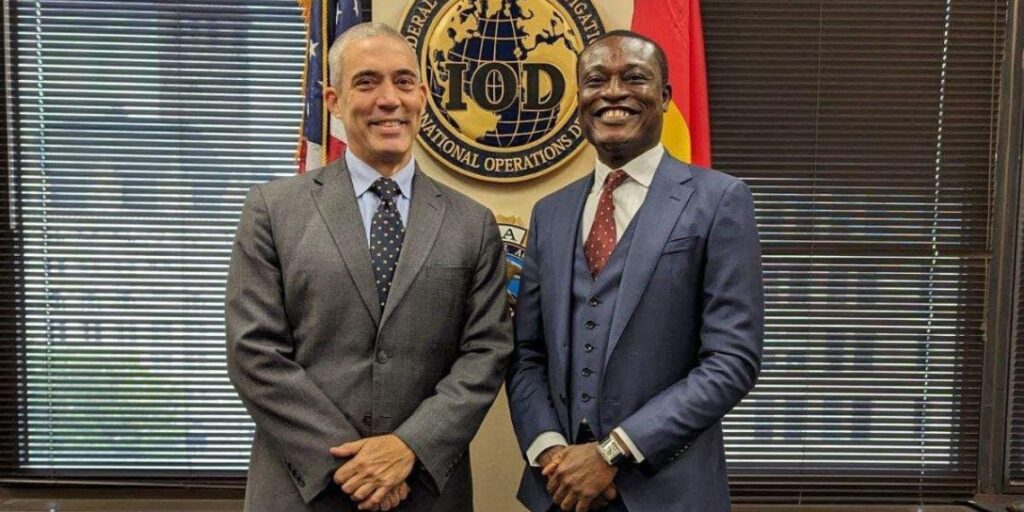Ghana’s Office of the Special Prosecutor (OSP) has released a half-year report that underscores both progress and persistent challenges in the battle against graft.
The OSP detailed seven convictions, millions in recovered funds, and ongoing hunts for fugitives, including a former finance minister now subject to an Interpol red notice.
The report, covering January to July 2025 and released by the independent agency tasked with investigating and prosecuting corruption, highlights a multifaceted approach blending enforcement, prevention, and asset recovery.
Amid economic pressures and public scrutiny, the office emphasized its role in safeguarding public funds while proposing sweeping reforms to Ghana’s anti-corruption framework.
Details
The latest report reveals the agency is handling 219 active cases: 67 at the full investigation stage and 152 in preliminary inquiries.
These span sectors from mining and energy to education and health, targeting entities like the Minerals Income Investment Fund, the National Cathedral project, and the Bank of Ghana.

Among the standout achievements are seven convictions secured through trials and plea bargains, a mechanism the OSP has increasingly utilized to expedite resolutions and recoup losses.
One notable case involved six individuals, including Tahidu Yakubu, convicted in April 2025 for corruption-related charges after offering restitution under the agency’s plea bargaining regime.
In another case, businessman Andy Thomas Owusu pleaded guilty to using public office for profit in a case linked to former official Charles Cromwell Nanabanyin Onuawonto Bissue, with the trial adjourned to late August.
A pilot audit of government payrolls in the Northern Region uncovered “ghost names” — fictitious or ineligible entries — leading to the blocking of 2.85 million Ghanaian cedis (about $180,000) in unearned monthly salaries.
This intervention is projected to save the state 34.25 million cedis annually, with efforts underway to claw back past overpayments to deceased, retired, or absent employees.
In a bribery case against Ibrahim Kofi Sessah and another, involving 604,260 cedis extorted from job applicants, plea bargains facilitated partial restitution.
Preventive Measures
The report also spotlights preventive measures, including the OSP’s push for constitutional amendments.
Special Prosecutor Kissi Agyebeng advocates for a dedicated anti-corruption chapter in Ghana’s Constitution, mandatory lifestyle audits for public officials, and non-conviction-based asset forfeiture to seize unexplained wealth without a criminal trial.

The agency is collaborating on a new National Ethics and Anti-Corruption Strategy, partnering with bodies like the Attorney General’s Office and the Commission on Human Rights and Administrative Justice.
Challenges
Yet, the OSP’s efforts are not without obstacles. High-profile investigations have encountered resistance, including legal challenges and evasion by suspects.
Kenneth Nana Yaw Ofori-Atta, Ghana’s former finance minister, was declared a fugitive in February 2025 after failing to appear for questioning on alleged procurement irregularities.
An Interpol red notice was issued in June, and extradition requests have been lodged internationally. Courts dismissed his bids to quash the arrest warrant and remove his wanted status, with the case adjourned to October.
Similarly, the case against Cecilia Abena Dapaah, a former sanitation minister, involving large cash sums, was referred to the Economic and Organised Crime Office for money laundering probes, amid jurisdictional back-and-forth.

Internationally, the OSP has bolstered ties to amplify its reach. It joined the Network of Anti-Corruption Institutions in West Africa and collaborates with global entities like the United Nations Convention against Corruption and the International Association of Anti-Corruption Authorities.
Technical support from the European Union, Germany’s GIZ, and the Basel Institute has enhanced forensic capabilities, while FBI assistance aided the Dapaah investigation.
Plans Ahead
Looking ahead, the OSP plans to file more prosecutions in the latter half of 2025 and invest in technology to tackle sophisticated corruption schemes.
It continues to lobby for new laws, including a Comprehensive Corrupt Practices Act and a Conduct of Public Officers Act, to make graft “a high-risk, low-reward enterprise,” as the report phrases it.
Some pundits highlight incremental wins in a country where corruption perceptions remain high, according to Transparency International rankings.
But others say with only one acquittal (which the OSP is appealing) amid the convictions, questions linger about the agency’s capacity to handle its caseload without broader systemic reforms.
This article was edited with AI and reviewed by human editors





